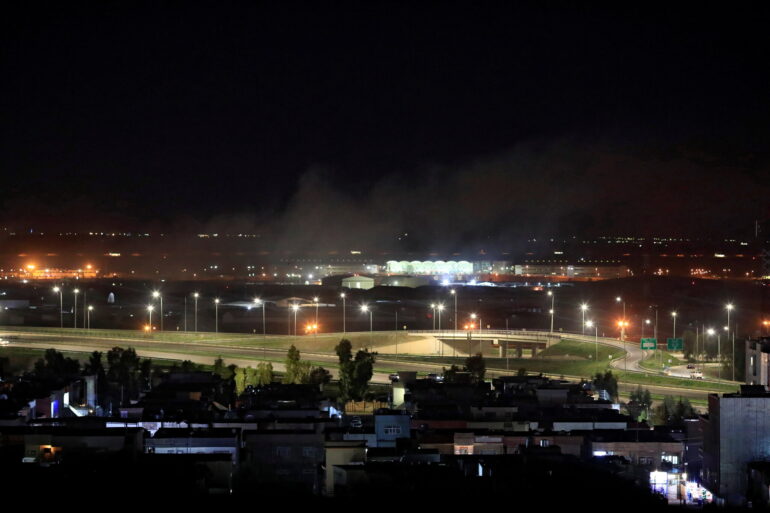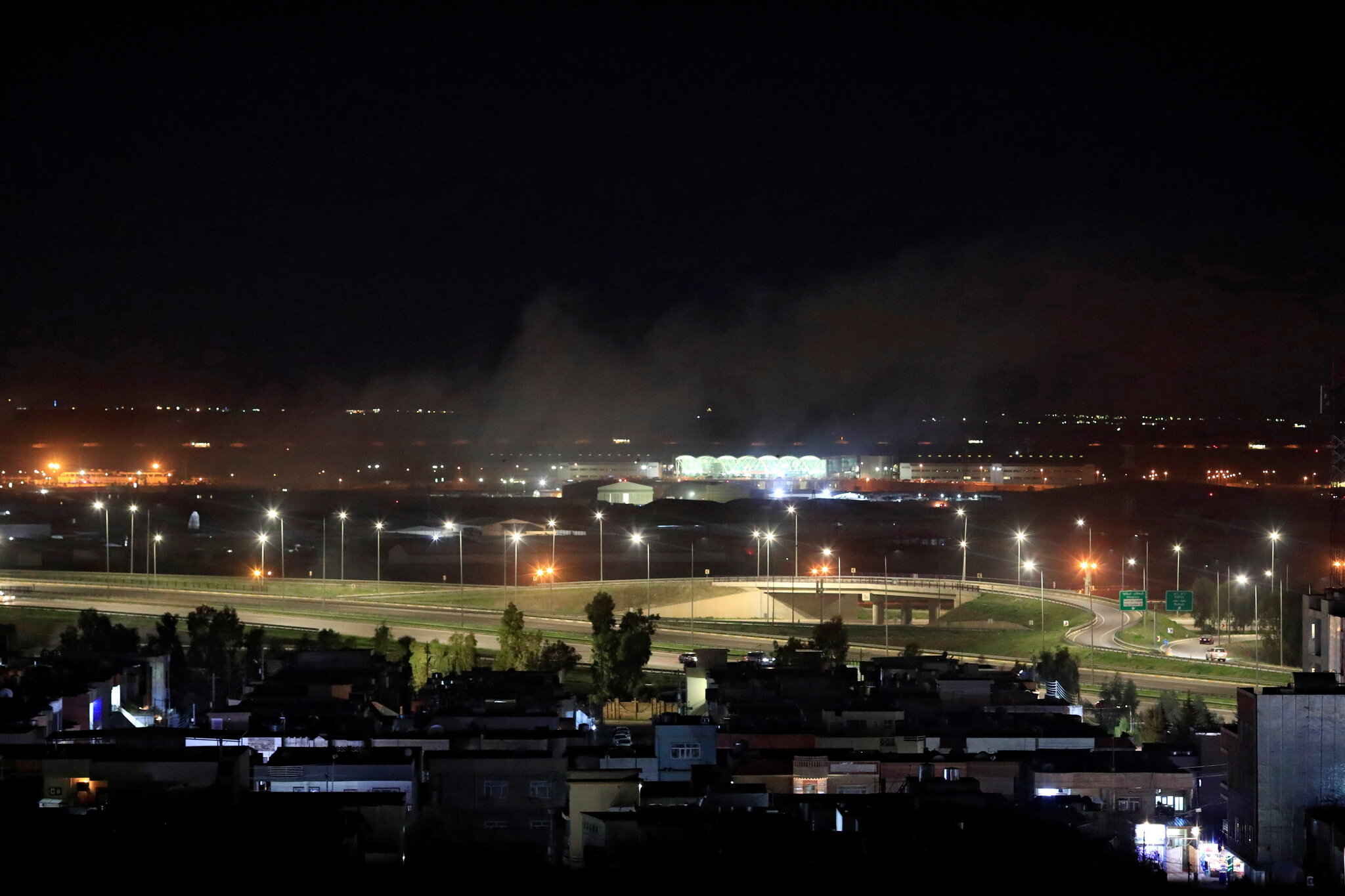Armed struggles among opposing factions in Iraq with support from foreign powers are threatening to plunge that country back into sectarian conflict.
The country, of which about two-thirds of its 39.3 million people are Shiite, houses militias backed by Iran, which is also Shiite. The northern area is also consumed by the age-old conflict between Turkey and Kurds, who are seeking to create a homeland.
To the west, Russian-propped Syria notes the 10th anniversary of its civil war, while remnants of ISIS, which mostly made up Sunni Muslim, intends on continuing its war against the U.S., which has bases in Iraq. Add now add NATO troops who are trying to keep the country from falling under Iran’s influence.
Recent rising tensions and tit-for-tat attacks between U.S. and Iranian-aligned militias stoke fears about Iraq’s security while ISIS is altering its strategy.
Embed from Getty ImagesSafeen Dizayee, the head of the Kurdistan Regional Government’s Department of Foreign Relations and a former senior spokesperson, told Humber News there are many armed groups in Iraq, some that are against the presence of foreign troops on Iraqi soil.
“It’s unfortunate there also are so many loose guns that are not under the control of the state, the Federal Army, and the Federal Police,” Dizayee said.
Shiite armed groups are allegedly supported and trained by Iran’s Revolutionary Guard. The relationship was highlighted by the numerous attacks on U.S bases after an American drone strike in Baghdad killed top Iranian general Qassim Suleimani in January 2020.
Dizayee said there is a strong bond between these groups and the Iranians, but added that should not be viewed as an attempt by Iran to build political influence in Iraq.
“It’s very natural to maintain this friendship,” he said.

The current situation follows control the terror group ISIS had in Iraq. It controlled about 40 per cent of Iraq at its height and by 2017, it lost its hold of Mosul in Iraq. Since then U.S. backed Kurds and Syrians almost wiped out ISIS in the region.
But the war didn’t end as Shiia militias continue to battle with remnants of ISIS in the Iraqi and Syrian border region.
A general with the Hashd al-Sha’abi, an umbrella Shiia group which once included up to 60 militia groups, said they are protecting Iraq from all foreign invaders.
“As for our purpose in Iraq, (we) defend our country against all kinds of terrorists and foreign attacks, and do not allow foreign countries to interfere with our country’s politics through terrorist groups,” said the general, who spoke on condition of anonymity because of the organization’s rules.
Embed from Getty ImagesThe general said influential Shiia leader Sayyid Ali al-Sistani issued a fatwa, a ruling point in Islamic law, to fight against ISIS in 2014 and it is still in effect. The ruling mobilized Shiia militias and they drafted as many able-bodied men as possible to fight against ISIS.
After defeating ISIS, about 50,000 armed Shiite troops actively remained in Iraq, Dizayee said. He said the Shiite militias continued to exist with support from the state, although they were not part of the country’s army.
Iraqi Turkmen Front (ITC) official spokesperson Mehmet Seman told Humber News the Iranian Revolutionary Guards’ commanders are officially leading some Shiite armed groups. The ITC is one of the largest and most popular Iraqi Turkmen parties.
He cited four Shiia militia groups that are under Iranian influence: the Ketaip Hizbullah, the Asayip Ehlil El Hak, the Kataip El Imam Ali, and the Seraya El Huresani.
“Iran is also arming and training them,” Seman said.
Meanwhile, NATO’s General-Secretary Jens Stoltenberg announced Feb. 18 its mission would add 500 troops to 4,000 personal in the region. The NATO Training Mission in Iraq (NTM-I) has been aiding Iraq since October 2018 with a training program to establish effective and accountable security forces.
NATO’s objective is to prevent the war-torn country from becoming a haven for international terrorists.
Dizayee said the NATO initiative strengthens the Iraqi federal government’s hold on military affairs within its country.
“It is important for the Iraqi security forces to maintain this kind of cooperation with any international party, whether it is within the framework of the international coalition or much more well-established organizations such as NATO,” he said.
The presence of American troops with NATO’s increasing role in Iraq remains a flashpoint for some militias.
Seman alleged the U.S. is using NATO forces to protect its soldiers as about a dozen American bases are being targeted by Iranian-backed militias to pressure them into withdrawing from Iraq.
Embed from Getty ImagesNevertheless, the Americans are expected to eventually leave Iraq to NATO to ensure Iraq is not left vulnerable to Iranian influences, he said.
THE NEW STRATEGY OF ISIS
According to a report by the Combating Terrorism Center at West Point, ISIS attacks increased to 1,669 in 2019 from 1,470 in 2018. Also, 566 attacks were reported in the first quarter of 2020 alone.
Dizayee said ISIS remains very active and it’s changed its tactics, becoming more like a guerrilla force — striking with hit-and-run attacks with small groups — rather than a conquering army that accumulates territory.
ISIS currently operates around Mosul, once a major hub in northern Iraq for the group that’s also near the Syrian-Iraqi border.
“If this issue is not being seriously looked into, and it is not being handled properly, probably after six months from now, you’ll have a much stronger ISIS than you did in 2014,” Dizayee said.
Bilgay Duman, an Iraq Study Coordinator at Center for Middle Eastern Study in Turkey, also had a warning about ISIS’s new strategy.
“ISIS can attack almost every region of Iraq as of today related to a (this) new tactic,” he said. “The conflict between Iran and the U.S. caused a big gap (in the) security of Iraq and international terrorist organizations are getting benefits from this conflict.”

